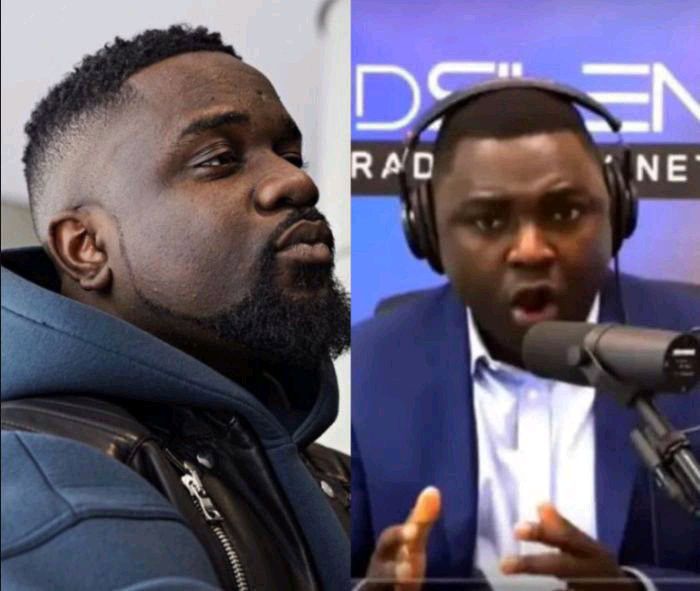
According to a report from Ghanacelebrities. In a fiery response to recent comments made by popular Ghanaian rapper Sarkodie, U.S.-based political commentator Kevin Ekow Taylor has taken to social media to express his displeasure, labeling the artist as a hypocrite, a tribal bigot, and a detrimental presence in Ghanaian politics. Taylor’s remarks come after Sarkodie tweeted his thoughts regarding the inauguration of the second John Dramani Mahama administration, reigniting discussions about the rapper’s role in the political landscape of Ghana.
Sarkodie, known for his influential voice in the Ghanaian music scene, stirred controversy with a cryptic tweet that read, “Ghanaians have gone back to gari soakings like we never left.” While the tweet lacked detailed explanation, many interpreted it as a veiled reference to the new National Democratic Congress (NDC) government, suggesting that citizens have returned to a state of hardship reminiscent of past administrations.
The tweet was met with a wave of criticism from various quarters, with many accusing Sarkodie of being ambiguous and evasive in his political commentary. Among his critics, Kevin Taylor, host of Loud Silence Media, did not hold back in his condemnation. In a recent video, Taylor launched a blistering attack on the rapper, asserting that Sarkodie’s comments reflect a deeper hypocrisy given his previous silence during the tenure of the New Patriotic Party (NPP).
In his rant, Taylor accused Sarkodie of being a “broke a musician” who has only chosen to speak out now that the political tides have shifted. “Where was he when the NPP was in power?” Taylor asked incredulously. He argued that Sarkodie’s sudden willingness to criticize the NDC, after a prolonged period of inaction, reveals a lack of genuine concern for the issues facing ordinary Ghanaians.
Furthermore, Taylor’s remarks extend beyond personal grievances, as he characterized Sarkodie’s rhetoric as emblematic of a larger issue within Ghanaian politics. He claimed that the rapper’s statements contribute to a culture of tribalism and division, undermining the potential for constructive political discourse in the nation. “We need leaders who speak truth to power, not entertainers who play both sides for clout,” Taylor asserted.
The fallout from Sarkodie’s tweet and Taylor’s subsequent critique has ignited a broader conversation about the responsibilities of public figures in political discussions. Many fans of the rapper have defended him, arguing that artists like Sarkodie have the right to express their opinions and that his comments may resonate with the frustrations felt by many Ghanaians.
However, Taylor’s passionate outburst has drawn attention to the challenges facing political commentators and artists in Ghana, where the line between entertainment and political activism can often become blurred. As debates continue to unfold, the public is left to ponder the role of influential figures in shaping political narratives and the importance of accountability in their statements.
As the political landscape in Ghana evolves, the interplay between music, celebrity, and politics remains a contentious topic. Taylor’s criticisms of Sarkodie serve as a reminder that the expectations for public figures extend beyond their entertainment value; they are also seen as voices of influence that can affect public opinion and political engagement.
In this ongoing dialogue, it is clear that the intersection of culture and politics remains a vital space for discussion. Whether artists like Sarkodie will engage more deeply with political issues or whether commentators like Taylor will continue to challenge them remains to be seen.
As the story develops, observers will be watching closely to see how both Sarkodie and Taylor navigate the complexities of their positions in Ghana’s vibrant political landscape. The implications of their discourse could have lasting effects on how politics is perceived and discussed in the public arena.
